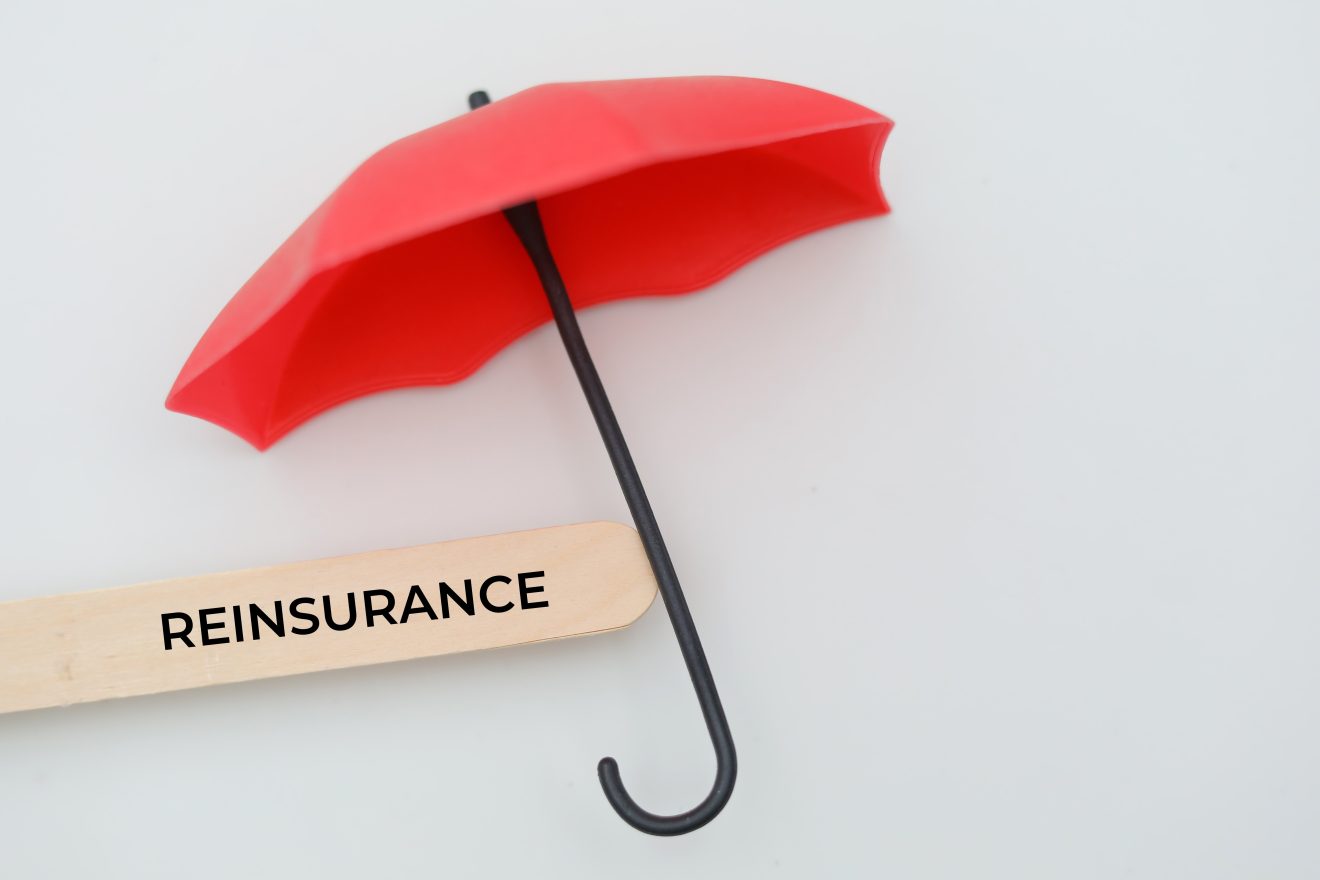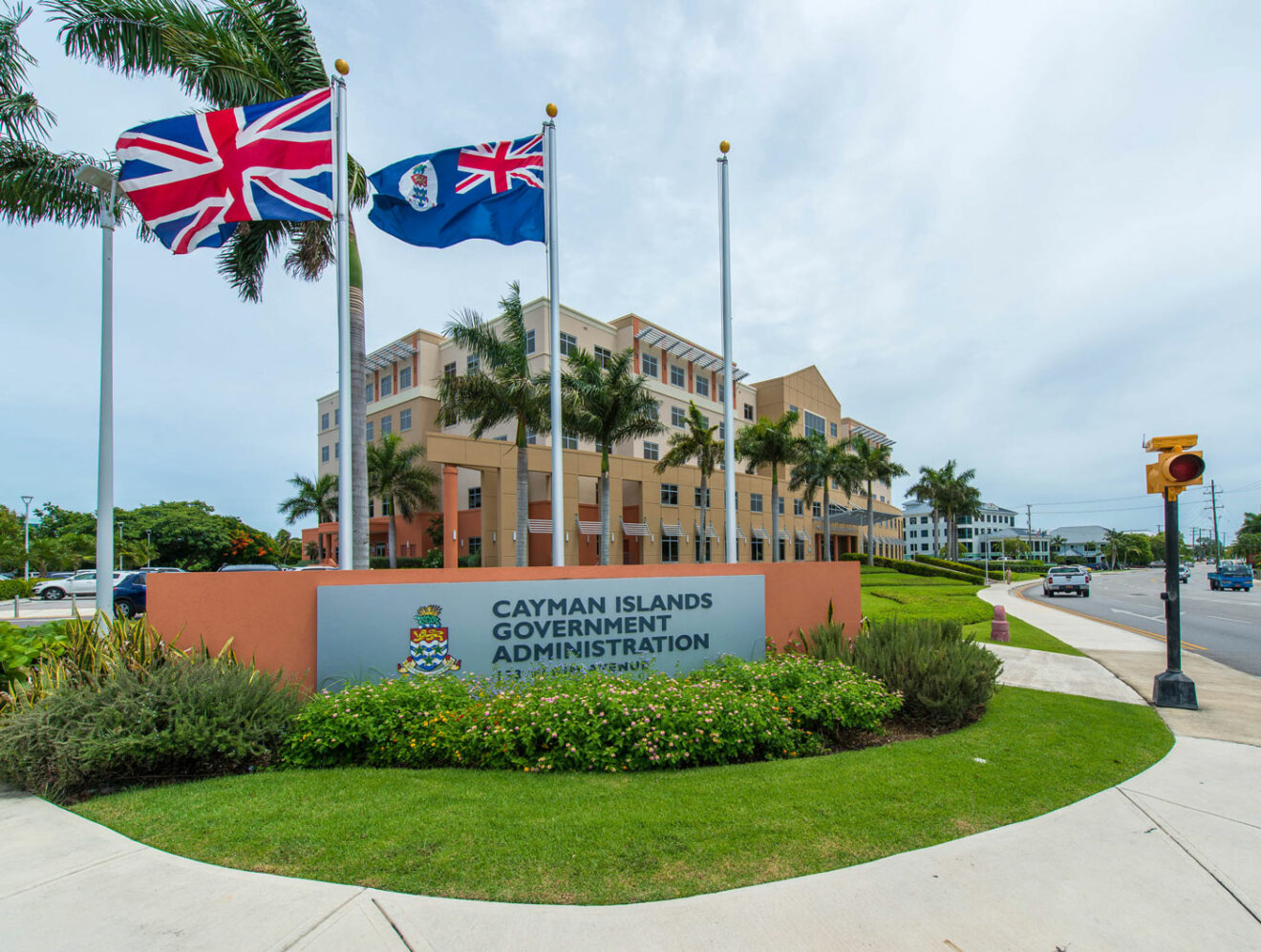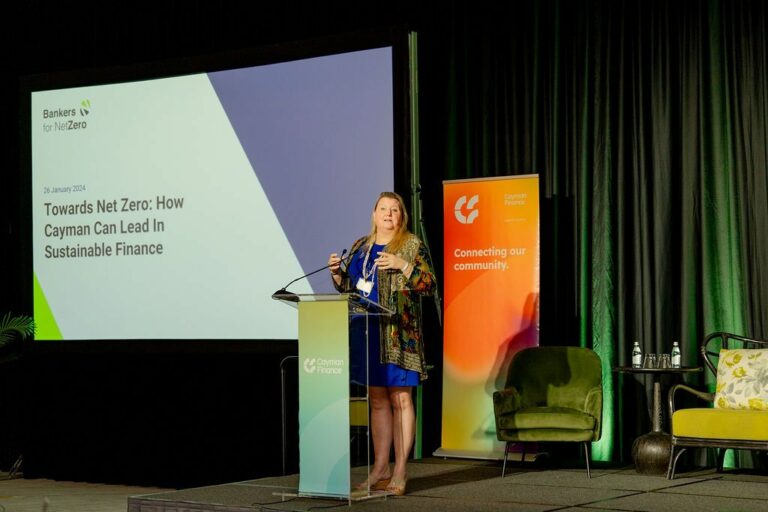
Heather Buchanan, CEO and co-founder of Bankers for Net Zero, explored Cayman’s potential role in sustainable finance at this year’s first Cayman Finance member event on 25 Jan at the Kimpton Seafire.
Buchanan explained how Cayman could leverage its financial influence as a significant domicile for investment funds to contribute to global net-zero efforts, as well as the need for innovative solutions, collaboration, and new financial practices to meet the challenges of climate change.
So far, there is a significant gap between the capital needed for net-zero transitions and what has been mobilised. The developed world alone needs an estimated $3.5 trillion each year to achieve net-zero goals, so that private capital will be of outsized importance, she said.
Money is not the problem, she added. “The money’s there and we all know that it’s there, but it’s about how we get it to move.”
Addressing the big picture will likely require a form of blended finance from government guarantees to help manage risks, philanthropy, family offices, private equity, and mainstream financial institutions. “A few hundred million in [government] heat pump grants is not going to cut it,” she said.
Buchanan acknowledged that the term ESG has become politically loaded but said “ultimately ESG is just about risk” and recognising the risk in one’s portfolio in terms of environmental, social and corporate governance factors.
Currently, financial institutions still face most difficulties in quantifying the emissions associated with their financed activities. ESG is seen as essential for understanding and managing risks in portfolios. As such, the traditional understanding of risk and value is being redefined to include factors like climate change.
Buchanan observed that the private sector has turned from reactive to being proactive and increasingly pushes for the creation of regulations to have consistent and effective sustainable finance practices. This public-private sector collaboration needs to accelerate, she concluded.

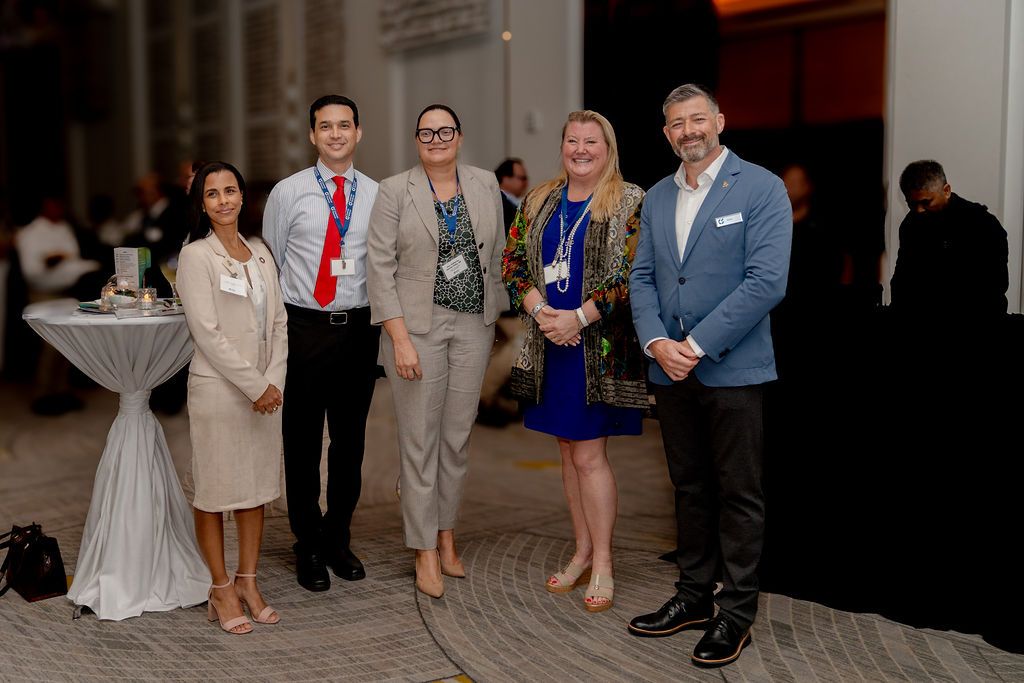



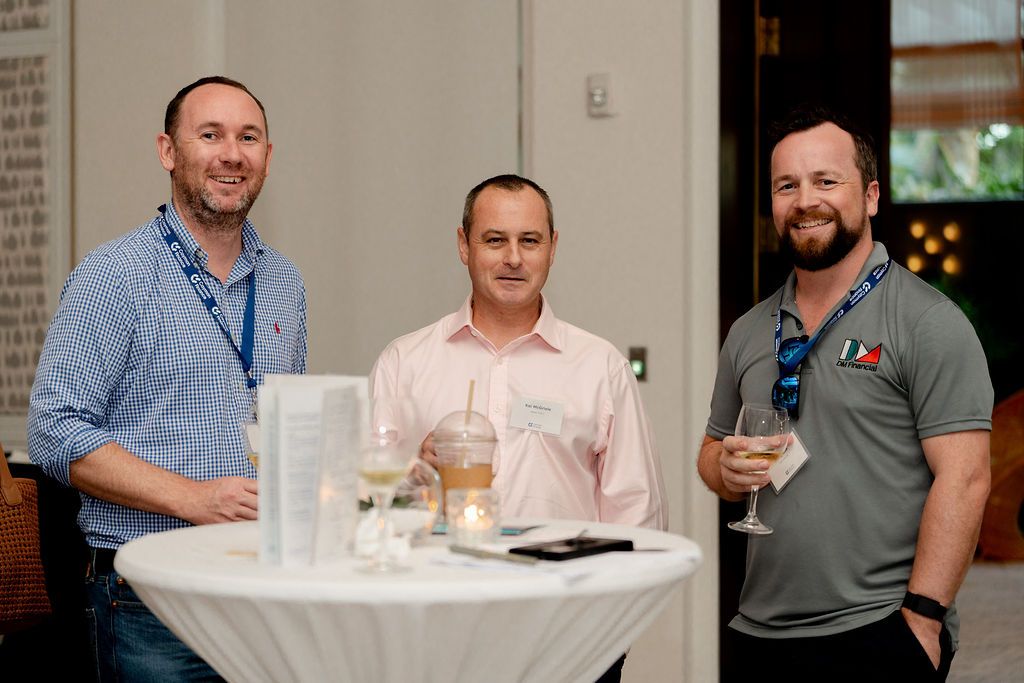
Balanced regulation
A subsequent panel discussion then highlighted the opportunities and strategies for integrating ESG standards, focusing on the financial sector and the unique position of the Cayman Islands.
Panelists noted the Cayman Islands is making progress in ESG, even if this is not yet fully reflected in global indices, such as the Global Green Finance Index.
Arnaud van Dijk, partner responsible for ESG at KPMG, said international benchmarks suggested other countries are moving faster in terms of sustainable finance frameworks and regulations.
Tina Meigh, partner at Maples, in turn, emphasised that most funds in the Cayman Islands are subject to overseas regulation, which might not be reflected in ESG rankings.
She argued that current ESG regulations in Cayman, focusing on governance and the operation of funds, are appropriate. “We don’t want to be creating an additional layer of regulation,” Meigh said.
Most clients will be trying to comply with the European regulations, which are seen as a benchmark globally, and investment managers now have specific ESG teams for those investment parameters, she added.
The lack of transparency and reporting of ESG related data and standardised metrics is one of the main challenges in the sustainable finance space.
Meigh advocated for an opt-in regime to gather data to inform future legislation and regulatory framework development. A wider opt-in regime would also offer entities the flexibility to adopt ESG policies suitable to their specific business.
Looking inward
Winston Connolly, managing partner of Chancery ESG Ltd, highlighted Cayman’s position in global finance and the need for the jurisdiction to establish a minimum ESG framework.
Connolly said ESG practices are mainly driven by institutional investors, not governments or service providers. Investors want to know that Cayman investment vehicles are not used for greenwashing, he said.
He too stressed the importance of neither being too lax, nor too stringent, in regulations to avoid losing business.
Connolly suggested that for Cayman to lead the way in sustainable finance and net-zero initiatives, the islands also need to look inward and assess the carbon value of its seagrass beds and mangrove forests.
He suggested exploring carbon credit exchanges and green bonds to attract capital for local environmental projects.
Van Dijk added that the Cayman-based Caribbean Catastrophe Risk Insurance Facility, which provides Central American and Caribbean governments with parametric catastrophe insurance, and Cayman’s ability to support funds shows that it could become a climate finance hub for the region to distribute climate funding from the Worldbank, development banks and others.
Meigh concluded “ESG compliance is good for business” and Cayman is flexible enough to adapt and adhere to whatever the predominant standards are going to be to continue to attract investors, investment managers and family offices.
“And if we can collect the data, develop the framework in the legislation that we need going forward, that’s only going to improve the position.”
